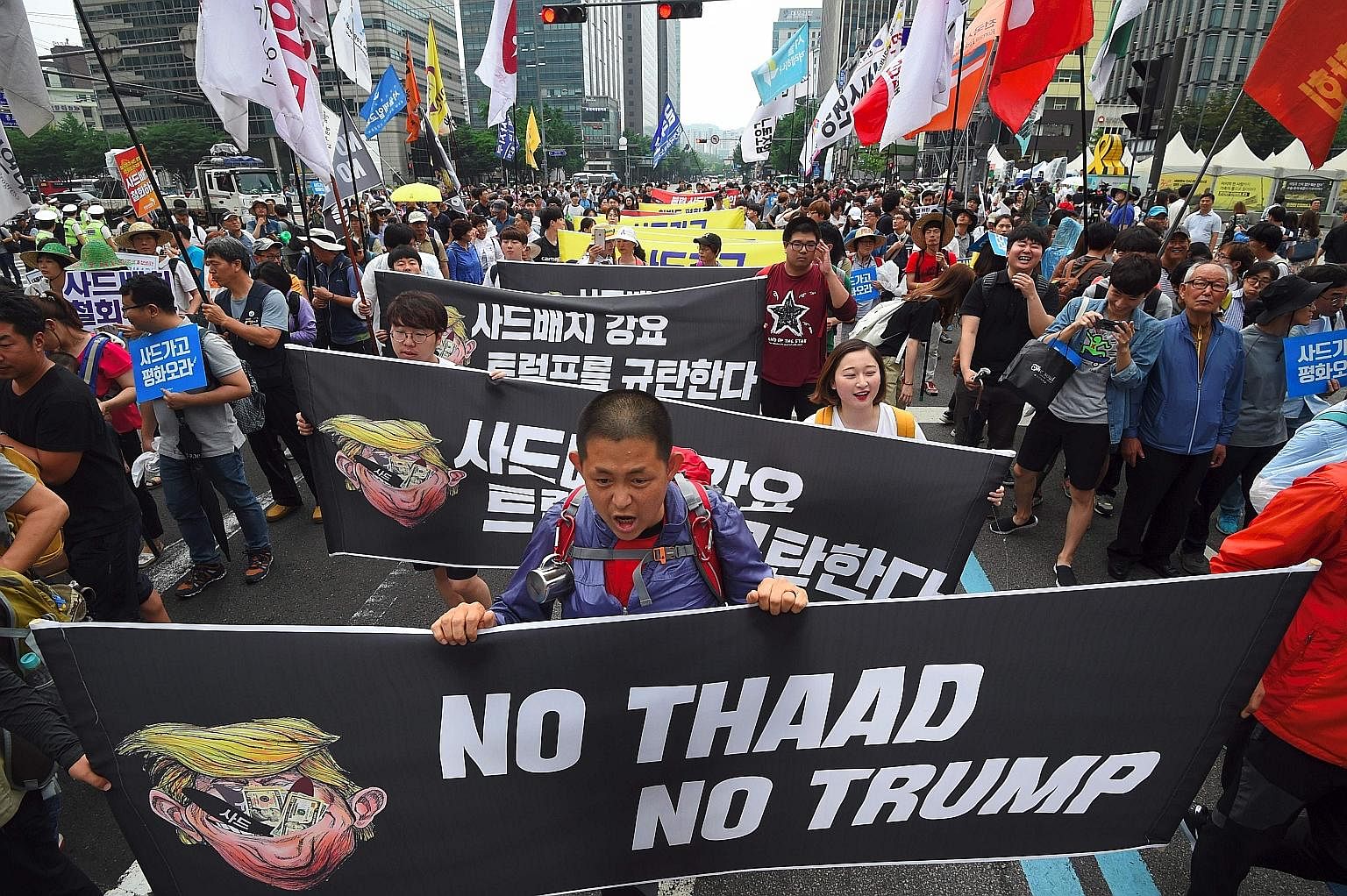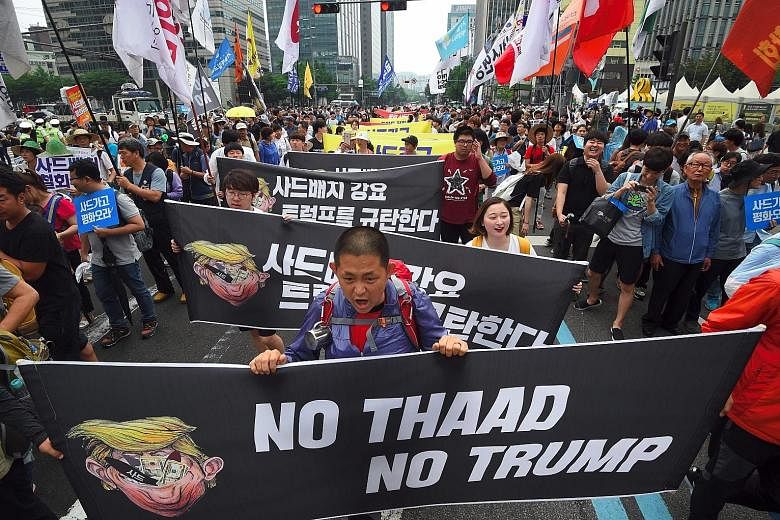From sports diplomacy to offers of humanitarian aid and putting the brakes on the disputed deployment of a US missile shield against North Korea, President Moon Jae In of South Korea has been eager to improve ties with his country's closest neighbour.
Mr Moon, who swept to victory early last month, has pledged to play a bigger role in resolving the North Korean nuclear issue through dialogue, and expressed willingness to travel to Pyongyang to meet its leader Kim Jong Un.
But as such a conciliatory approach can undermine international sanctions imposed on Pyongyang for missile tests and send conflicting messages to Washington, which has so far put denuclearisation above dialogue, analysts say it is critical for Mr Moon to seek understanding from his US counterpart Donald Trump when they meet for the first time later this week.
Their summit meeting will be watched keenly for signs of change in US-Korea ties, and if the two leaders can find common ground on their North Korea policies and assuage the ongoing controversy over the deployment of the Terminal High Altitude Area Defence (Thaad) missile shield which has provoked economic retaliation from China.
Dr Go Myong Hyun, research fellow at The Asan Institute for Policy Studies, said Mr Moon will take to the White House a message to shift the focus from military containment, which includes annual joint exercises and deployment of strategic assets, to dialogue with the North.
"What President Moon is looking to get from President Trump would be basically a tacit agreement that we should engage North Korea, and tacit consent from the Trump side that the US would not oppose if President Moon wants to have a summit with Kim Jong Un as soon as possible," he said.

-
NORTHERN OVERTURES
-
MAY 10: South Korean President Moon Jae In, on his election, pledges to unite the divided nation, resolve military tension and visit Pyongyang for talks.
-
EARLY JUNE: Civic groups put up 15 requests for inter-Korea exchanges, including humanitarian aid. But North Korea rejects them all.
-
JUNE 12: Unification minister nominee Cho Myung Kyun says the inter-Korea Kaesong Industry complex must be reopened. Separately, Mr Moon suggests including North Korea in a North-east Asian bid to jointly host the 2030 World Cup.
-
JUNE 18: Mr Moon's security aide Moon Chung In raises the possibility of scaling down US-South Korea military exercises if the North stops provocations. The presidential office later clarifies those are just his own views.
-
JUNE 24: Mr Moon, at the opening of a taekwondo championship attended by a North Korean team, invites the North to participate in the 2018 Winter Olympics.
-
Chang May Choon
Mr Moon has already expressed willingness to travel to Pyongyang and to restart stalled inter-Korea exchanges on the humanitarian, sports and economic fronts. His orders to delay Thaad deployment pending an environmental review is also interpreted as a move to mend ties with China, and seek talks with the North.
Local newspapers have warned that such initiatives to appease Pyongyang could be premature, and worse, damage relations with the US. Washington, already fuming at the death of American student Otto Warmbier after 18 months of captivity in the North, will also not be pleased to know that some 3,000 people had gathered in front of the US Embassy in Seoul last Saturday for a "No Thaad, No Trump" protest.
Mr Scott Snyder, a senior fellow at the Council for Foreign Relations in Washington, said the US has so far been understanding, but "the sense of urgency created by North Korea's... march towards a nuclear strike capability may fray US tolerance for domestically driven South Korean delays".
While the Moon administration is seeking dialogue on grounds that a decade of sanctions has failed to end the North's nuclear programme, Pyongyang has not been very receptive. It has rejected suggestions of inter-Korea exchanges, insisting Seoul should lift sanctions first. Mr Moon's latest proposal to form a unified Korea team for the 2018 Winter Olympics hosted by the South has also met with a lukewarm response.
Mr Snyder cautioned that Mr Trump's personal views of South Korea being a security and economic free rider "could surface at any time to generate bad chemistry" during the summit and make it hard for the allies to negotiate a free trade deal and cost-sharing of maintaining 28,000 US troops in South Korea.
"The task before them is to develop the chemistry and commitment necessary to work together to meet increasingly serious shared challenges," he said.


